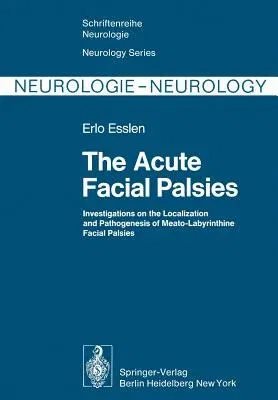Erlo Esslen
(Author)The Acute Facial Palsies: Investigations on the Localization and Pathogenesis of Meato-Labyrinthine Facial Palsies (Softcover Reprint of the Original 1stPaperback - Softcover Reprint of the Original 1st 1977, 28 December 2011

Qty
1
Turbo
Ships in 2 - 3 days
In Stock
Free Delivery
Cash on Delivery
15 Days
Free Returns
Secure Checkout
Part of Series
Schriftenreihe Neurologie Neurology
Print Length
164 pages
Language
English
Publisher
Springer
Date Published
28 Dec 2011
ISBN-10
3642665365
ISBN-13
9783642665363
Description
Product Details
Author:
Book Edition:
Softcover Reprint of the Original 1st 1977
Book Format:
Paperback
Country of Origin:
NL
Date Published:
28 December 2011
Dimensions:
24.41 x
16.99 x
0.99 cm
ISBN-10:
3642665365
ISBN-13:
9783642665363
Language:
English
Location:
Berlin, Heidelberg
Pages:
164
Publisher:
Weight:
299.37 gm

